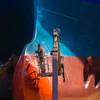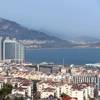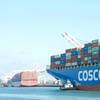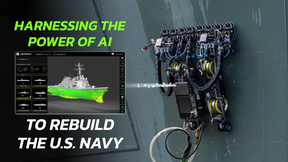A joint oil and chemical protection exercise between the Nordic countries will involve more than 300 personnel and 30 vessels, making for one of the largest projects of its kind in European history.
An increasing level of shipping traffic has led to a growing fear of accidents and an adverse risk picture. The accident involving M/V Full City in July 2009 on the coast of Langesund illustrated the crucial need for preparedness in dealing with accidents across national borders.
To meet this aim, the Nordic countries will arrange a joint oil and chemical protection exercise September 25-29 in Langesund. Code-named SCOPE 2017 (Skagerrak Chemical Oilspill Pollution Exercise), the project is co-funded by the European Union and is being organized by the Norwegian Coastal Administration on behalf of the European Commission.
“International cooperation is a key factor to protect and minimize impacts of major accidents and spills. In an effort to ensure that all parties know what to do when an accident happens, it’s vitally important to conduct joint spill exercises in advance, both locally, nationally and internationally. This enables us to test and improve our response strategies and technologies for use in different scenarios and this particular exercise is unique in size, scope and international participation,” said Stig Wahlstrøm, Project Manager for SCOPE 2017.
SCOPE 2017 is a full-scale exercise where all participants will face realistic challenges as a result of a simulated collision between a chemical tanker and an oil tanker. This includes such areas as oil and gas spill response at sea and on land, combating chemical pollution, crisis management, handling of damaged vessels and evacuation and place of refuge. Representatives from more than 70 countries will be invited to observe the exercise.
The exercise has been in the making for several years, and the final preparation details will be concluded when the participants meet for a three-day meeting in Langesund May 30. Representatives of the EU and all participating organizations will be present.
“If an accident occurs, for example, on the coast of Telemark, our neighboring country can quickly be affected, so for this reason the EU provides support. The SCOPE 2017 project shall also strengthen collaboration between the regional readiness services, and make the best possible use of resources, servicesand guidelines offered through the EU. Also, we cooperate closely with the Swedish Coast Guard, the Royal Danish Navy and the Environmental Directorate in Iceland,” Wahlstrøm said.
The Norwegian Coastal Administration has project responsibility for the exercise, and the South-East Police District, Norway and the Intermunicipal Emergency Response Organization (IUA) in Telemark are also national partners.
All participating organizations have a unique opportunity to train in leadership and collaboration, during the simulation of a serious vessel accident.
“Norway is a partner in the international work and cooperation for protecting the marine environment through several international agreements. Norway’s commitment in these agreements are administered by the Norwegian Coastal Administration and, in the case of an acute pollution, we are responsible for coordinating national preparedness so that environmental impacts are minimized,” Wahlstrøm explained. “Good coordination across neighboring countries and various organizations is essential to respond swiftly and capably. SCOPE 2017 is a good opportunity for us all to test and improve our strategies and practices to raise the overall level of safety in our waters.”















